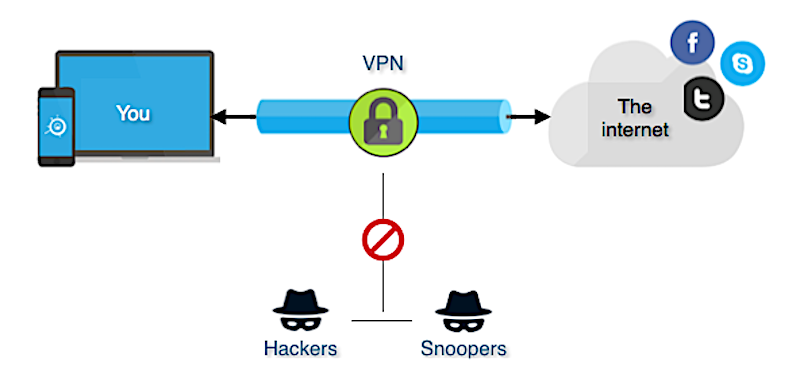What is a Virtual Private Network (VPN)?
A Virtual Private Network (VPN) is a technology that allows users to create a secure connection over the internet. VPNs encrypt internet traffic and disguise users' online identities, making their activities harder to track. By using a VPN, users can protect their data from potential threats, especially when accessing public Wi-Fi networks. VPNs are commonly used to bypass geo-restrictions, maintain privacy, and secure communications on the internet.
How Does a VPN Work?
A VPN connection works by routing a user's internet traffic through a remote server, hiding their original IP address and encrypting their data. When a user connects to a VPN server, their internet traffic is encrypted, and the server acts as an intermediary between the user and the internet. This process helps maintain privacy, prevent eavesdropping, and protect sensitive information from cyber threats. It essentially masks the user's location and online activities from third-party surveillance.
Types of VPNs
There are several types of VPNs, each catering to specific needs:
-
Remote Access VPN: Primarily used by individual users to connect securely to a remote network. It’s ideal for accessing private networks while working remotely.
-
Site-to-Site VPN: This type is used by businesses to connect multiple networks across different locations securely. It facilitates secure communication between offices, ensuring data privacy during inter-office transfers.
-
Mobile VPN: Specifically designed for mobile devices, ensuring continuous, secure connections as users move between different networks.
Benefits of Using a VPN
-
Enhanced Security: A VPN secures data through encryption, reducing the risk of cyber-attacks, identity theft, and unauthorized data access.
-
Privacy Protection: By hiding the IP address and encrypting internet traffic, a VPN helps protect user privacy and prevents websites from tracking personal information.
-
Access Restricted Content: VPNs allow users to bypass geographical restrictions, enabling them to access content that may be blocked or censored in their location.
-
Safe Public Wi-Fi Use: Public Wi-Fi networks are often not secure, leaving users vulnerable to attacks. A VPN safeguards online activities when using public Wi-Fi by encrypting data.
-
Bypass Censorship: VPNs enable users to access restricted content in countries where certain websites or services are censored.
How to Choose the Right VPN
When choosing a VPN, consider the following factors:
-
Security Features: Look for a VPN with strong encryption standards, such as AES-256 encryption, and security protocols like OpenVPN or WireGuard.
-
Speed and Performance: VPNs can sometimes slow down internet speeds. Choose one with a fast, reliable server network to ensure minimal lag during use.
-
Logging Policies: Some VPN providers log user activity, which could compromise privacy. Opt for a VPN with a strict no-logs policy.
-
Server Locations: More server locations provide greater flexibility and better chances of bypassing geo-restrictions.
-
Customer Support: Reliable customer support is crucial if any issues arise while using the VPN service.
Popular VPN Providers
-
NordVPN: Known for its security features, speed, and ease of use.
-
ExpressVPN: A user-friendly VPN with servers in many countries, offering high-speed connections.
-
CyberGhost: Offers robust privacy protection and a large server network.
-
Surfshark: Affordable and offers unlimited device connections, making it a popular choice for families and businesses.
VPN in Business Security
Businesses increasingly use VPNs to secure remote workers and inter-office communications. By ensuring all data transmitted between employees and the company's private network is encrypted, businesses can protect sensitive company information. VPNs also help businesses maintain regulatory compliance by keeping customer data secure.
Read More - https://www.marketresearchfuture.com/reports/virtual-private-network-market-2160
Conclusion
A Virtual Private Network (VPN) is essential for enhancing online security, protecting privacy, and bypassing internet restrictions. Whether for personal use or business applications, a VPN provides a robust solution to safeguard internet activities. With numerous benefits such as improved security on public Wi-Fi, secure remote work access, and privacy protection, a VPN is a valuable tool for anyone concerned about online safety.

